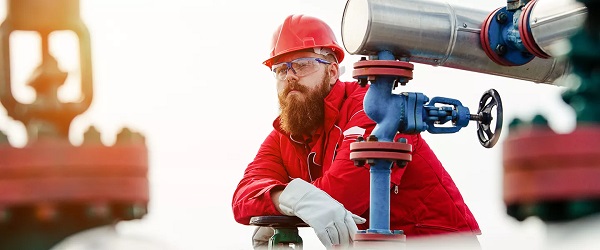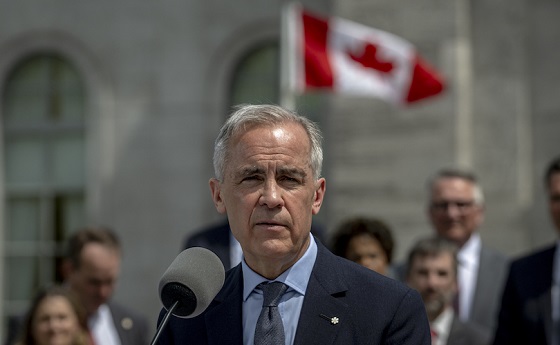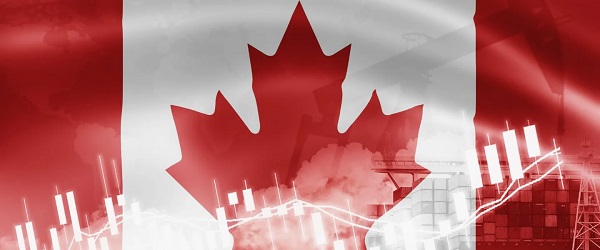Energy
Trump’s promises should prompt major rethink of Canadian energy policy

From the Fraser Institute
By Elmira Aliakbari and Julio Mejía
In three weeks, the United States will have a new president. And despite Donald Trump’s pledge to “unleash” the American oil and gas sector by cutting red tape and accelerating permit approvals, the Trudeau government remains committed to constraining Canada’s oil and gas industry. The result? More investment to the U.S. and less to Canada. To prevent Canada from falling further behind the U.S., the government must reverse harmful policies that drive investors away.
Even before Trump’s victory, Canada’s oil and gas sector was less attractive for investment compared to the U.S. According to a 2023 survey of oil and gas investors, 68 per cent of respondents said uncertainty about environmental regulations deters investment in Canada’s oil and gas sector compared to 41 per cent in the U.S. And 54 per cent said Canada’s regulatory duplication and inconsistencies deter investment compared to only 34 per cent for the U.S.
This negative perception reflects years of policy decisions that have consistently undermined Canada’s oil and gas industry. To name a few.
In 2016, just one year after taking office, the Trudeau government cancelled the Northern Gateway pipeline from Alberta to British Columbia’s coast. The $7.9 billion project, previously approved by the Harper government, would have expanded market access and boosted exports to Asia.
In 2017, the TransCanada energy company withdrew its application for the Energy East and Eastern Mainline pipelines from Alberta and Saskatchewan to the east coast, which would have expanded access to European markets. The projects became economically unfeasible after the Trudeau government required the company to account for greenhouse gas emissions from oil production and consumption—not just transportation, a requirement that was never part of prior environmental assessments. (Incidentally, that same year Prime Minister Trudeau vowed to “phase out” fossil fuels in Canada.)
In 2019, the Trudeau government enacted Bill C-69, which introduced subjective criteria—including the “social impact” and “gender implications” of projects—into the evaluation of major energy projects, creating significant uncertainty. That same year, the government passed Bill C-48, which bans large oil tankers from B.C.’s northern coast, further limiting access to Asian markets.
In 2023, the Trudeau government announced plans to cap oil and gas sector emissions at 35 per cent below 2019 levels by 2030—while leaving other sectors in the economy untouched. This will likely force energy producers to limit production. And the government’s new methane regulations and rules, which require fuel producers to reduce emissions, have added to the sector’s costs and regulatory challenges.
Predictably, these policy decisions have taken a toll. Investment in the oil and gas sector plummeted over the last decade, from $84.0 billion in 2014 to $37.2 billion in 2023 (inflation adjusted)—a 56 per cent drop. Less investment means less money to develop new energy projects, infrastructure and technologies, and consequently fewer jobs and less economic opportunity for Canadians across the country, especially in Alberta, which has been a destination for workers seeking high wages and more opportunity.
Now in 2025, Trump wants to attract investment by streamlining processes and cutting costs while Canada drives investment away with restrictive and costly regulations. If Ottawa continues on this path, Canada’s leading industry—and largest source of exports—will lose more ground to the U.S. To restore our competitiveness and attract investment, the federal government must rethink its approach to the energy sector and scrap the harmful policies that will hurt Canadians today and in the future.

Elmira Aliakbari
Alberta
Nobel Prize nods to Alberta innovation in carbon capture

From the Canadian Energy Centre
‘We are excited to bring this made-in-Canada innovation to the world’
To the naked eye, it looks about as exciting as baking soda or table salt.
But to the scientists in the University of Calgary chemistry lab who have spent more than a decade working on it, this white powder is nothing short of amazing.
That’s because the material they invented is garnering global attention as a new solution to help address climate change.
Known as Calgary Framework-20 (CALF-20 for short), it has “an exceptional capacity to absorb carbon dioxide” and was recognized in connection with the 2025 Nobel Prize in Chemistry.
“It’s basically a molecular sponge that can adsorb CO2 very efficiently,” said Dr. George Shimizu, a UCalgary chemistry professor who leads the research group that first developed CALF-20 in 2013.
The team has been refining its effectiveness ever since.
“CALF-20 is a very exciting compound to work on because it has been a great example of translating basic science into something that works to solve a problem in the real world,” Shimizu said.
Advancing CCS
Carbon capture and storage (CCS) is not a new science in Alberta. Since 2015, operating projects in the province have removed 15 million tonnes of CO2 that would have otherwise been emitted to the atmosphere.
Alberta has nearly 60 proposed facilities for new CCS networks including the Pathways oil sands project, according to the Regina-based International CCS Knowledge Centre.
This year’s Nobel Prize in Chemistry went to three of Shimizu’s colleagues in Japan, Australia and the United States, for developing the earliest versions of materials like CALF-20 between 1989 and 2003.
Custom-built molecules
CALF-20 is in a class called metal-organic frameworks (MOFs) — custom-built molecules that are particularly good at capturing and storing specific substances.
MOFs are leading to new technologies for harvesting water from air in the desert, storing toxic gases, and capturing CO2 from industrial exhaust or directly from the atmosphere.
CALF-20 is one of the few MOF compounds that has advanced to commercial use.
“There has been so much discussion about all the possible uses of MOFs, but there has been a lot of hype versus reality, and CALF-20 is the first to be proven stable and effective enough to be used at an industrial scale,” Shimizu said.
It has been licensed to companies capturing carbon across a range of industries, with the raw material now being produced by the tonne by chemical giant BASF.
Carbon capture filter gigafactory
Svante Inc. has demonstrated its CALF-20-based carbon capture system at a cement plant in British Columbia.
The company recently opened a “gigafactory” in Burnaby equipped to manufacture enough carbon capture and removal filters for up to 10 million tonnes of CO2 annually, equivalent to the emissions of more than 2.3 million cars.
The filters are designed to trap CO2 directly from industrial emissions and the atmosphere, the company says.
Svante chief operating officer Richard Laliberté called the Nobel committee’s recognition “a profound validation” for the entire field of carbon capture and removal.
CALF-20 expansion
Meanwhile, one of Shimizu’s former PhD students helped launch a spinoff company, Existent Sorbents, to further expand the applications of CALF-20.
Existent is working with oil sands producers, a major steel factory and a U.S.-based firm capturing emissions from other point sources, said CEO Adrien Côté.
“The first users of CALF-20 are leaders who took the risk of introducing new technology to industries that are shrewd about their top and bottom lines,” Côté said.
“It has been a long journey, but we are at the point where CALF-20 has proven to be resilient and able to survive in harsh real-world conditions, and we are excited to bring this made-in-Canada innovation to the world.”
Business
Bill Gates walks away from the climate cult

Billionaire Bill Gates — long one of the loudest voices warning of climate catastrophe — now says the world has bigger problems to worry about. In a 17-page memo released Tuesday, the Microsoft co-founder called for a “strategic pivot” away from the obsessive focus on reducing global temperatures, urging leaders instead to prioritize fighting poverty and eradicating disease in the developing world. “Climate change is a serious problem, but it’s not the end of humanity,” Gates wrote.
Gates, 70, argued that global leaders have lost perspective by treating climate change as an existential crisis while millions continue to suffer from preventable diseases like malaria. “If I had to choose between eradicating malaria and preventing a tenth of a degree of warming, I’d let the temperature go up 0.1 degree,” he told reporters ahead of next month’s U.N. climate conference in Brazil. “People don’t understand the suffering that exists today.”
For decades, Gates has positioned himself as a leading advocate for global climate initiatives, investing billions in green energy projects and warning of the dangers of rising emissions. Yet his latest comments mark a striking reversal — and a rare admission that the world’s climate panic may have gone too far. “If you think climate is not important, you won’t agree with the memo,” Gates told journalists. “If you think climate is the only cause and apocalyptic, you won’t agree with the memo. It’s a pragmatic view from someone trying to maximize the money and innovation that helps poor countries.”
The billionaire’s change in tone is sure to raise eyebrows ahead of the U.N. conference, where climate activists plan to push for new emissions targets and wealth transfers from developed nations. Critics have long accused Gates and other elites of hypocrisy for lecturing the public about fossil fuels while traveling the globe on private jets. Now, Gates himself appears to be distancing from the doomsday rhetoric he once helped spread, effectively admitting that humanity faces more immediate moral imperatives than the weather.
(AP Photo/Alex Brandon)
Stunning Climate Change pivot from Bill Gates. Poverty and disease should be top concern.
-

 Alberta7 hours ago
Alberta7 hours agoFrom Underdog to Top Broodmare
-

 International18 hours ago
International18 hours agoPrince Andrew banished from the British monarchy
-

 Business1 day ago
Business1 day agoCanada’s attack on religious charities makes no fiscal sense
-

 Business18 hours ago
Business18 hours ago“We have a deal”: Trump, Xi strike breakthrough on trade and fentanyl
-

 Alberta2 days ago
Alberta2 days agoNobel Prize nods to Alberta innovation in carbon capture
-

 Bruce Dowbiggin1 day ago
Bruce Dowbiggin1 day agoGet Ready: Your House May Not Be Yours Much Longer
-

 Crime17 hours ago
Crime17 hours agoCanada Seizes 4,300 Litres of Chinese Drug Precursors Amid Trump’s Tariff Pressure Over Fentanyl Flows
-

 National2 days ago
National2 days agoCanadian MPs order ethics investigation into Mark Carney’s corporate interests












